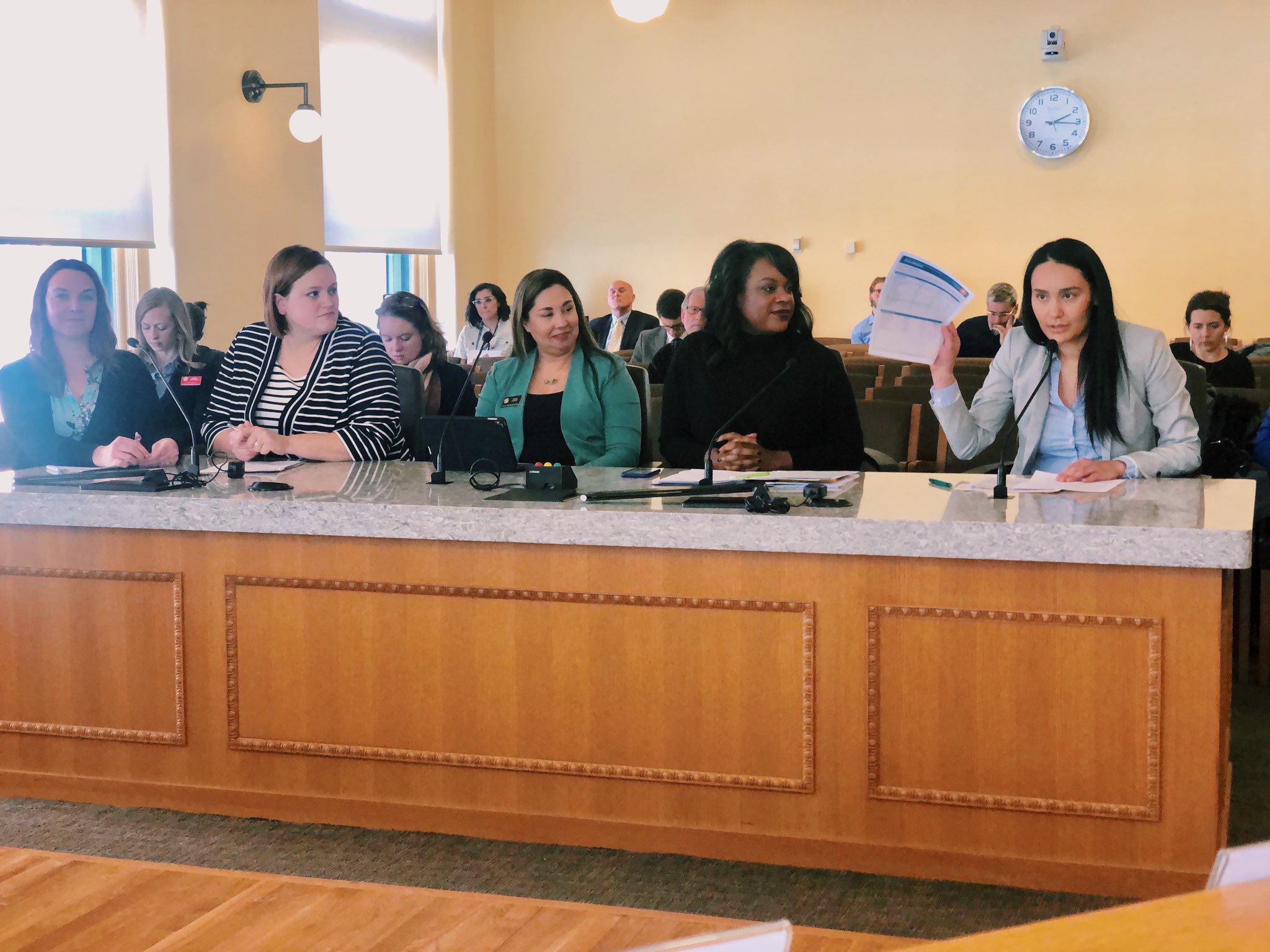Bethany Pray, CCLP’s Chief Legal and Policy Officer, provided testimony in support of House Bill 24-1133, Criminal Record Sealing & Expungement Changes. CCLP is in support of HB24-1133, as it is one of our priority bills.
Recent articles
CCLP testifies in support of Necessary Document Program updates
Charlie Kestler, one of CCLP’s Policy Fellows, provided testimony in support of Senate Bill 24-211, Adjustments to the Necessary Document Program. CCLP is in support of SB24-211, as it is one of our priority bills.
CCLP testifies in support of protections for DNC drivers
Charles Brennan provided testimony in support of House Bill 24-1129, Protections for Delivery Network Company Drivers. CCLP is in support of HB24-1129.
CCLP testifies in support of TANF grant rule change
CCLP's Emeritus Advisor, Chaer Robert, provided written testimony in support of the CDHS rule on the COLA increase for TANF recipients. If the rule is adopted, the cost of living increase would go into effect on July 1, 2024.
CCLP Testimony in Support of HB-1184

The following is testimony from Allison Neswood, Health Care Attorney at Colorado Center on Law and Policy regarding House Bill 1184. It was given in front of the House Finance Committee on March 4.
Good afternoon. My name is Allison Neswood and I am a health care attorney with Colorado Center on Law and Policy. CCLP is a nonprofit, nonpartisan policy advocacy organization that works to ensure access to health care and economic security for Coloradans facing economic poverty. CCLP supports House Bill 1184 because it will help lawmakers understand the impact proposed legislation has on disparities.
Colorado has a problem with disparities. To illustrate my point, I’d like to start my testimony by talking about research captured in the Prosperity Now Scorecard. The Scorecard measures the relative prosperity of each states’ residents by looking at 52 different measures of economic and social well being.
Now, if you’ll look at the first handout I gave you (there’s a seven at the top, front and back). You’ll see that Colorado is doing pretty well when we look at the prosperity of our residents overall. In fact, our state would score in the top 10 among the states and D.C. if we only looked at the overall numbers.
But the 2019 Scorecard also disaggregated 26 of the prosperity measures to understand how residents of color in each state were fairing in comparison to white residents.
If you will now look at the second handout (there’s a 42 at the top), you’ll see that Coloradans of color fair worse on all measures than Colorado’s white residents.
In fact, the gaps in economic well being, health and educational attainment are so large in Colorado, that the Scorecard data gave us a racial disparity rank of 42 among the 50 states and DC. For such a prosperous state, that is way too close to dead last.
In addition, I just want to note that this is a problem in all parts of Colorado. The last handout contains county level data I pulled from the Scorecard for seven of the Colorado counties represented by the members of this committee. You’ll see that it is a similar story in each county.
Now, I started by talking about how communities of color are struggling. So to do my friends and neighbors justice, I also have to talk about root causes. Our nation generated much of its great wealth through two of the most severe forms of human exploitation in modern history: chattel slavery and the dispossession of Native American land.
And the exploitation and neglect of our communities of color did not end with emancipation and the relegation of native people to reservations. We continued well into the 20th century to traumatize Native American communities by kidnapping native children from their families and placing them in federal boarding schools where they were beaten for speaking their language and where sexual abuse was rampant.
After World War II, government subsidized housing programs helped white families buy their first home in the suburbs, the GI bill helped white veterans get an education, purchase a home, and start a business, and the Social Security Act helped white Americans save for retirement and pass on wealth to their children. Many white Americans can trace their family wealth to these government policies. But people of color were largely excluded from these benefits.
Government endorsed redlining practices continued and exacerbated residential segregation and confined black Americans to neighborhoods that received minimal to no investment and that have been targeted by the negative externalities of highway development and industrial waste. Think about Flint, Mich.
We continue to harm people of color with inhumane immigration policies, the effects of which reach deep into our communities.
And we’ve dealt with the consequences of all this social exploitation and neglect with a biased criminal justice system and mass incarceration.
Disparities based on race are not the only type of disparities we see in society. But they are real and they teach us that discriminatory policies harm our people and that the harm is passed down through generations. In addition, disparities are costly for society as a whole. The Joint Center for Economic and Political Studies estimates that between 2003 and 2006, 30.6 percent of direct medical care expenditures for racial and ethnic minorities were excess costs stemming from health disparities. The center estimated that eliminating health disparities for minorities would’ve reduced direct medical care expenditures by nearly $230 billion.
Policymakers in Colorado should do all they can to understand the ways in which the bills they propose impact disparities. HB-1184 is a modest measure that moves us in that direction. I urge your support.
– By Allison Neswood





